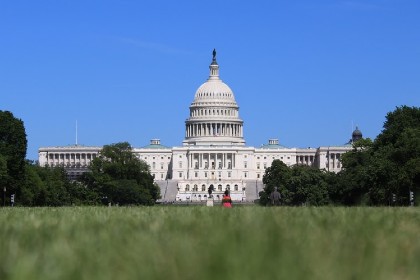Super Lawyers Honors 2025 Kotz Sangster Attorneys

Kotz Sangster is pleased to announce the recognition of our attorneys as 2025 Michigan Super Lawyers and Rising Stars.


Congress has passed and President Trump has signed a new bill which impacts both individuals and businesses. This measure, which has taken months, has been described as a stop gap in the economic fight against the financial impact of the coronavirus. The rhetoric is there likely will be another round of relief in the early spring. The information below is strictly a summary and shall not be considered legal advice. You should discuss any of the provisions discussed below with your personal or business tax counsel. There may be missing items or unexpected consequences, as there was in the original CARES Act, as the lawyers and accountants try to decipher the new law. This bill provides the following:
Stimulus Checks: The direct payments will be $600.00 per adult and per child. There will again be income-based limits. For those individuals who did not receive the first stimulus check of $1,200.00 but believe they were entitled to a check, there should be a tax credit election on the 2020 Form 1040.
Unemployment Benefits: The expiring CARES Act programs and Pandemic Unemployment Assistance have been extended for another 11 weeks. The federal government will add $300.00 per week (first round in the spring was $600.00) for unemployment benefits.
PPP Loan: The PPP loan programs will be funded with an additional $284 billion dollars. Certain businesses, such as restaurants, who already received a PPP loan are eligible for a second loan. There are provisions for other specific industries to obtain loans, such as trade associations, which have not been able to recover from the state-mandated shutdowns. The financial terms of the new loans have not been disclosed.
Deductibility of Expenses: Congress has agreed to allow deductions for the expenses paid by the initial PPP loans if the PPP loan is forgiven. The Department of Treasury was against this provision, claiming a taxpayer was getting a double dip. However, Congress intended the PPP loan to be tax free. If the deductions are not allowed, then the wages, rents or other allowable expenses paid for by the PPP loan proceeds would not be deductible. For many businesses this could create taxable income upon the loan forgiveness by the SBA.
Housing Assistance: The bill extends the eviction moratorium through the end of January. There is also $25 billion in rental assistance. Landlords should help their at risk tenants to determine if they qualify for the rental assistance. There is also an enhancement to the Low Income Housing Tax Credit program to increase affordable housing construction.
Education: Funds have been allocated to school districts and colleges to help them reopen classrooms and prevent the virus from spreading.
Tax Changes: There are provisions that allow taxpayers to use their 2019, not 2020, income to claim earned income tax credits and child care credits. For business owners there is extension and enhancement of the employee tax retention credit, payroll tax credit and deductibility of business meals. Other temporary deductions were made permanent or extended, such as the Reduction in Medical Expense Deduction Floor to 7.5% of AGI, Energy Efficient Commercial Building Deduction, and the Exclusion from Gross Income of the discharge of qualified personal residence indebtedness until 1/1/26. These are a few of the items which were either extended or made permanent.
State of Michigan Liability Issues: Michigan Governor Gretchen Whitmer signed into law several bills on October 22, 2020, including those providing a liability shield to individuals and entities that comply with COVID-19 related government directives and offering protections for certain employees who are required to stay off work because they contract, exhibit symptoms of, or are exposed to COVID-19. The three bills are retroactive to March 1, 2020.
The purpose of the bills is provide immunity from tort liability or Michigan Occupational Safety and Health laws or regulations from COVID-19 claims for entities, governments, business, individuals, education and non-profit organizations acting in compliance with COVID-19 related laws, rules, regulations and orders.
There are also specific employee protections such as:
If you have questions regarding any of the above, please feel free to contact your Kotz Sangster attorney for further clarification.